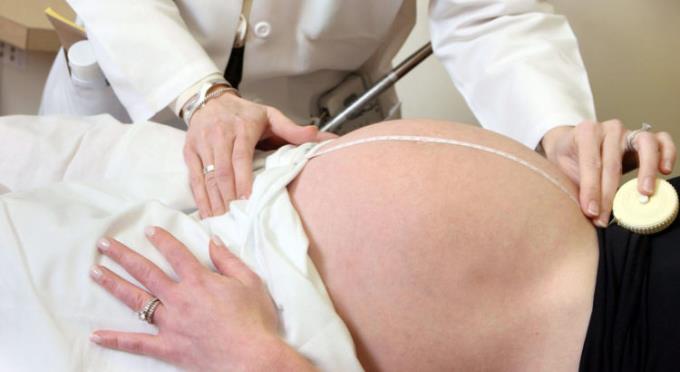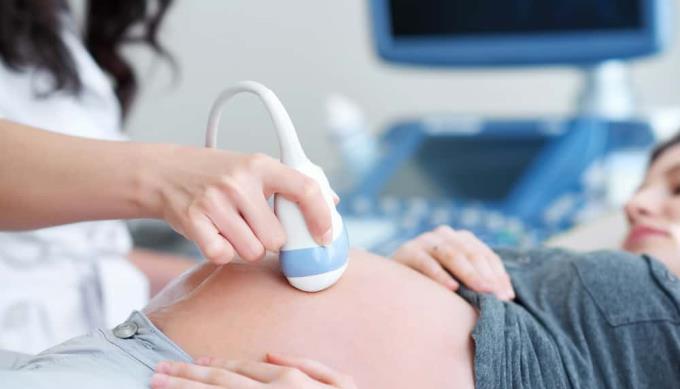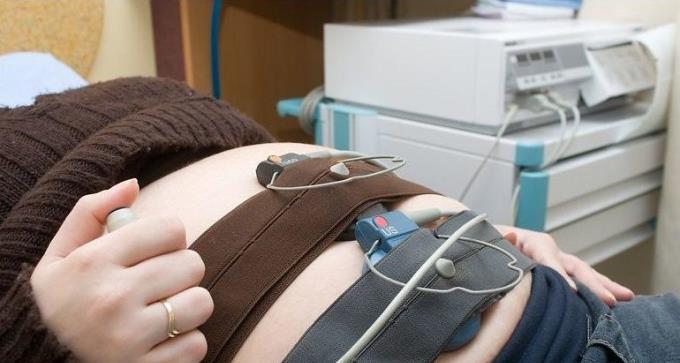Periodic pregnancy check-up according to doctor's appointment is one of the very important things that pregnant mothers should adhere to during pregnancy. Regular antenatal care not only helps pregnant mothers get proper health care, but also brings many benefits to the fetus.
You know you have just conceived a pregnancy and wonder if you should go to prenatal care right away? At what intervals do important antenatal care milestones in pregnancy take place? Along refer to the following article of aFamilyToday Health to know the pregnancy check-up schedule that pregnant mothers should not ignore.
The importance of routine pregnancy check-ups
During pregnancy , you should get the best health care through regular prenatal check-ups to ensure the health of mother and baby. Thereby, the obstetrician knows the health status of you and your fetus, helping to limit the possible risks during pregnancy.
You will understand the development of the fetus through regular visits. In addition, you will also receive advice about nutrition or what to avoid during pregnancy to have a healthy pregnancy. You should follow the antenatal check-up schedule that your doctor has set out because some tests only give accurate results in a certain period of time.
Some studies have shown that pregnant mothers who follow the regular antenatal check-up schedule help reduce the risk of fetal death by 5 times compared with those who do not. In addition, the proportion of babies born to mothers who did not have antenatal care is lighter than mothers elected to regularly check antenatal care.
After your first visit, your obstetrician will give you a specific schedule for next pregnancy check-up. Usually, you will be asked to see a doctor at least once a month during the first 6 months of pregnancy. Going through your last trimester, you will need to go to prenatal care more often. During your pregnancy, you will have about 10-15 prenatal visits. If you have ever had a baby, you should have at least 7 prenatal care.
15 periodic pregnancy check-ups that pregnant mothers cannot ignore

Schedule of routine pregnancy check-up in the first trimester (after finding out pregnancy - 13 weeks and 6 days)
1. The first prenatal visit
The first prenatal visit usually happens when you are about 5-8 weeks pregnant. This is a very important milestone for determining whether you are indeed pregnant and determining the embryo's implantation site.
You know you are pregnant when you notice a delay of about 1 week and use a pregnancy test to see 2 bars. At this point, your doctor will give you the following tests:
Check weight, height to calculate the BMI of the body to evaluate whether you are overweight, obese or not. If so, your doctor will teach you how to manage your pregnancy weight to limit possible pregnancy complications.
Take your blood pressure to see if you have high blood pressure or are at risk of pre-eclampsia.
A urine test that checks pregnancy hormone (hCG) levels to make sure you are pregnant, your embryo is developing normally.
Ultrasound checks the embryo position and gestational age in order to promptly detect abnormalities such as ectopic pregnancy ...
Calculate your baby's gestational age and due date based on the first day of your last period.
In addition, you may have to have blood tests to check for:
Measles antibodies
Chickenpox antibodies
Hepatitis B
Syphilis
HIV AIDS
Hemoglobin concentration
The Rh factor
Blood group
Smallpox antibodies.
At this regular pregnancy check-up, your doctor will advise you on some of the following issues:
Give you a folic acid supplement to prevent spina bifida in the fetus.
Advice on issues related to nutrition, diet and food hygiene.
Warning for lifestyle factors that can affect your health or the health of your baby, such as working in hazardous environments, smoking, using drugs and alcohol, and taking drugs other.
Counseling on prenatal screening tests you may need during pregnancy.
During this prenatal visit, provide your doctor with information regarding pregnancy such as:
Information about your menstrual cycle (regular or irregular)
You have had a miscarriage , premature birth, pre-eclampsia, or an infection in a previous pregnancy or birth
You are treating a chronic medical condition, like diabetes or high blood pressure
You are taking medicine for a medical condition. If possible, bring your doctor's book, prescription, or medications you are taking with you so your doctor knows
You or any family member has ever had a child with birth defects such as Down , spina bifida ...
You or a family member has an inherited condition such as sickle cell or cystic fibrosis .
Usually, your doctor will make an appointment for you back in about 4 weeks. Sometimes the antenatal check-up for the next visit is only 1-2 weeks after the first visit. It depends on your health or fetal development, gestational age. You should see your doctor on time as your doctor has scheduled.
2. 2nd pregnancy checkup: About 8 weeks of pregnancy
If the first prenatal visit, you go to the doctor right after the pregnancy, the sonographer has not checked the fetal heart or embryo has problems, the obstetrician will appoint you for a second antenatal checkup when the pregnancy is about 8 week.
At this prenatal visit, the doctor still conducts routine examinations such as weight check, blood pressure measurement, urine test, blood test and ultrasound to evaluate the development of the fetus.
3. 3rd pregnancy check-up: 10 th - 13 weeks 6 days

From the 10th week of pregnancy, when you have regular prenatal check-ups, in addition to routine exams such as weight check, blood pressure measurement, and ultrasound, your doctor will order you to do the following important tests:
At 10 weeks, you will be prescribed a Thalassemia test to see if the fetus is at risk for hereditary anemia, premature rupture of red blood cells leading to lack of oxygen.
During the pregnancy of about 10-12 weeks of age, depending on the fetal position in the uterus, the weight of the pregnant mother and the due date, the doctor will measure the baby's heart rate using a handheld Doppler device. . This may be the first time you hear your baby's beats.
During the period from week 11-13 weeks 6 days: You will be assigned a test Double test and ultrasound examination deformed limbs, herniated diaphragm, especially ultrasonic measuring nuchal translucency to measure Price fetus at risk of Down or not.
If an ultrasound of the nape of the nape of the neck shows that the fetus is at risk for genetic diseases, your doctor will order you to do a placenta biopsy (CVS). The placenta biopsy is performed early in pregnancy usually between 10 and 13 weeks so you can find out sooner your baby's condition. The placenta biopsy is an invasive test that can cause a miscarriage, but you shouldn't worry too much because the rate is very low, just under 1%.
Your doctor will calculate the odds of your baby getting Down syndrome, Trisomy 13 and Trisomy 18 based on the test results, your age, and gestational age.
Schedule of routine pregnancy check-up in the second trimester (from 14 to 27 weeks and 6 days)
Usually in the second trimester, you will need to see your doctor once a month. But if there is a problem with your health condition or your pregnancy, the interval between prenatal visits will be shorter. In the second trimester, your doctor still prescribes calcium, iron or mineral supplements that are good for pregnant women and the fetus.
1. The 4th antenatal visit: When the pregnancy is from 14-16 weeks
At this prenatal visit, your doctor will order you to check for:
Your weight
Blood pressure
Pregnancy examination: Check the fetal heartbeat
Urine testing
Ultrasound to monitor your health and fetal development
Blood test: Your doctor may order you to have a blood test to check for 3 hormones (estriol, B-hCG and free alpha fetoprotein). These hormone levels provide information about the risk of the baby having Down syndrome or a neural tube defect such as spina bifida.
At the end of the visit, your doctor will prescribe you to take a micronutrient supplement depending on your health and fetal development.
2. The 5th pregnancy check-up: When the pregnancy is 16 - 20 weeks

At this visit, your doctor will prescribe you to do the following exams:
Check your weight
Blood pressure
Antenatal Exam: Check the fetal heartbeat and measure uterine height for gestational age (your doctor will measure the distance from the top of your uterus to your pubic bone).
Urine test: Your doctor will order you to do a urine test to check your sugar, protein levels to check for signs of gestational diabetes and the risk of pre-eclampsia.
Ultrasound to observe the growth of the fetus and the amount of amniotic fluid
Amniocentesis: If the previous tests show that your baby is at risk for birth defects, your doctor will recommend an amniocentesis between the 15th and 18th weeks of pregnancy. Amniocentesis may be available after 24 hours or sometimes it takes up to 4 weeks. Note that this procedure has a low risk of miscarriage with a low rate of less than 1%.
Tests triple test : This type of blood test is done between weeks 15-20 of pregnancy. This test helps diagnose health problems of the fetus such as genetic disorders, neural tube defects .
Based on the examination and the results of the tests, your doctor will prescribe the appropriate micronutrient supplement for you.
3. 6th pregnancy check-up: Week of pregnancy 20-24

You will have to:
Check your weight
Blood pressure
Pregnancy examination: Measure the distance from the top of the uterus to the pubic bone to calculate the gestational age, check the fetal heart
Urine testing
Ultrasound to observe the growth of the fetus and the amount of amniotic fluid.
Usually at 20 weeks of pregnancy, you will be assigned a 4D ultrasound to check fetal morphology, screen for abnormalities (heart, limbs, abdomen, bones, brain, spine, kidneys) and Check the placenta position, the amount of amniotic fluid.
If you find that your baby has a serious physical abnormality, after looking at the ultrasound, your doctor will let you know to consider whether to suspend the pregnancy. To ensure the health of pregnant mothers, the suspension of pregnancy should be carried out before 24 weeks of pregnancy.
4. 2nd Saturday examination: 24th week - 27th week 6 days
You will have to:
Check your weight
Blood pressure
Antenatal check: Measure the distance from the top of the uterus to the pubic bone to monitor the development of the fetus, check the fetal heart
Urine testing
Ultrasound to observe the growth of the fetus and the amount of amniotic fluid.
Screening for gestational diabetes : In order to promptly intervene with diet and exercise or supplement with insulin.
Blood test for Rh negative factor : If the blood test shows that your blood type has this factor, your doctor will recommend you to do another blood test to check if your body is making the antibodies against your baby's Rh-positive factor. If the test shows that your body is producing antibodies, your baby will be monitored more closely. Sometimes your doctor will give you an injection of Rh immune globulin at 28 weeks so your body won't produce antibodies.
Schedule of routine pregnancy check-ups in the third trimester (from 28 weeks until delivery)

Between the 28th and 36th week of your pregnancy, you will have a check-up every two weeks. After 36 weeks, you will see a check-up every week until delivery. Tell your doctor about any health problems you experience such as feeling tired, sad, cramping, swelling, headache or swelling or signs of uterine bleeding ...
Your doctor will check your baby's heart rate and measure your uterus to estimate the size of your baby, compare with gestational age to gauge your baby's growth. If you notice an abnormality, your doctor will recommend a 4D ultrasound to check the fetal development, the level of amniotic fluid in the uterus and the position of the baby ( buttocks , transverse or dominant ).
During the third trimester, your doctor still prescribes essential micronutrients for you to pregnant women.
1. The 8th - 10th pregnancy examination: From 28 - 36 weeks gestation

In addition to routine exams such as weight check, blood pressure measurement, pregnancy check-up, your doctor will order tests such as:
Blood
Urine
Ultrasound: If the ultrasound shows that the fetus is buttocks, your doctor can guide you to rotate it in a natural way . You will also have an exam of your cervix to see if you are about to give birth.
Umbilical tetanus vaccination: During this time, you will be given a newborn umbilical cord tetanus shot (2 shots separated by 1 month) to prevent tetanus in your baby.
Non-stress test (chromosome): After 28 weeks of pregnancy, your doctor will order you to do this test to check the health of your baby, based on changes in fetal heart corresponding to fetal movement . In addition, tests also help doctors find out if the fetus is getting enough oxygen or not.
From the 30th week onwards, there are a few things to keep in mind:
Counting of fetal movements: Normally from 4 times / hour
Follow-up as soon as you see:
Stomachache
Bleeding, vaginal discharge
Little gestation, weak machine
There are signs of abnormality.
2. The 11-14 pregnancy check-up: The pregnancy is from 36-40 weeks
Usually, when your pregnancy reaches this stage, you'll need to have a prenatal check-up every week. At each visit, your doctor will conduct routine exams, examining the cervix combined with ultrasound to monitor your pregnancy. In addition, you may be offered a pelvic exam to assess whether you are fertile and a Non-stress test.
If you notice signs of prolapse (falling belly), your doctor will advise you how to recognize the signs of delivery so as to promptly hospitalize when there are signs of early labor.
3. The 15th antenatal visit: Week 40 - 42
If you do not have signs of labor during this stage, your doctor will examine you in conjunction with an ultrasound exam to check the amniotic fluid and the fetal condition. This is to help the doctor consider whether to intervene to have a baby or to wait.
Wish you have a healthy pregnancy, when you give birth to a square mother!

















